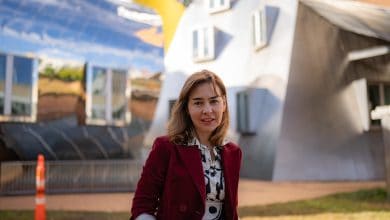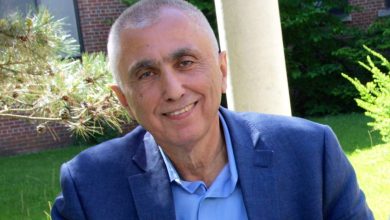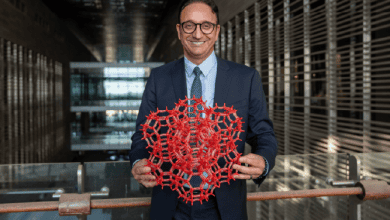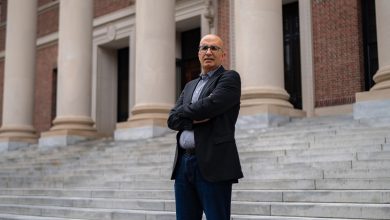Nashat Nassar, a chemical engineer redefining energy and environmental solutions
The journey of a chemical engineer who challenges conventions to create sustainable solutions
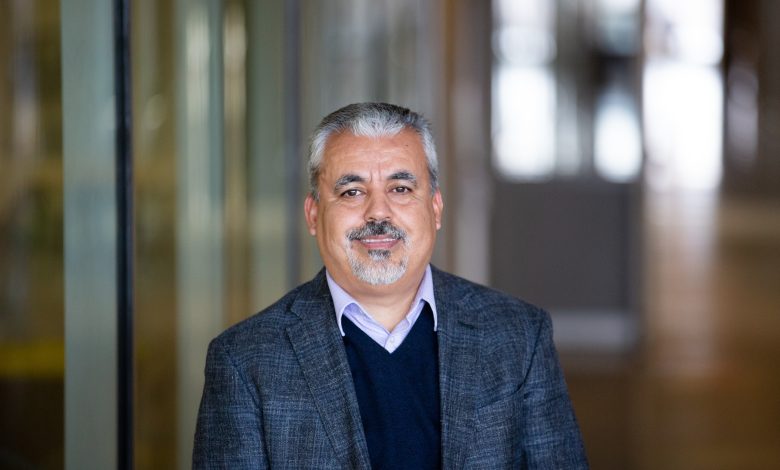
“I envision a future where green energy sources can power our homes, cars, and businesses more productively” Nashaat Nassar
A common cliché is that chemical engineers are technocrats donning hard hats and lab coats, laser focused on improving the design and production of petrochemicals, plastics, and pharmaceuticals in sterile, large-scale industrial plants. This is truly one aspect of them. However, this narrow viewpoint overlooks the broader implications and creative possibilities of this branch of engineering. By contrast, Nashaat Nassar, a Professor and Schulich Industry Chair in Nanotechnology for Energy and Environmental Application in the Department of Chemical and Petroleum Engineering at the University of Calgary, sees his specialty as a powerful tool for addressing some of the world’s most pressing environmental and energy challenges. As an internationally recognized leader in nanotechnology applications for energy and environmental challenges, Nassar is developing nanomaterials to improve oil recovery and reduce environmental impacts.
ولنتخيلْ جزيئات صغيرة عالية التقنية تعمل كنوع من الأبطال الخارقين على المستوى المجهري. ويتلخص هدفها في تزويد البشر بطاقة أنظف. وللاضطلاع بذلك يعمل أبطالنا النانويون على تفكيك النفط الثقيل، وهو نوع من النفط الخام الكثيف واللزج الذي يصعب استخراجه ومعالجته، إلى قطع أكثر قابلية للإدارة، مما يجعل عملية الاستخراج في الوقت نفسه أكثر كفاءة وصديقة للبيئة. والنفط الثقيل عبارة عن هيدروكربون غير تقليدي، مثل الغاز الصخري ورمال النفط القطرانية، وهذا يعني أن استخراجه ومعالجته يشكلان الصعوبة نفسها مقارنة بالنفط والغاز التقليديين. وعادةً ما تُشارك في استخراج النفط الثقيل عملياتٌ كثيفة الطاقة (مثل الاسترداد الحراري، والتكسير الهيدروليكي، والتعدين السطحي). ولكن ما القاسم المشترك بين كل هذه العمليات؟ إنها تدمر البيئة، وتستهلك الطاقة، وينبعث منها غاز ثاني أكسيد الكربون بنحو جنوني. ولكن عمل نصّار أثبت قدرات كبيرة، بما في ذلك الحد من استخدام الطاقة، وخفض انبعاثات غازات الدفيئة، والحد من توليد النفايات الصلبة، وحاز عشر براءات اختراع لهذه التطورات.
إن مجموعة أبحاث تكنولوجيا النانو التي يرأسها الأستاذ الدكتور نصّار هي مختبر داخل جامعة كالغاري، حيث يعمل زملاء ما بعد الدكتوراه وطلبة الدراسات العليا والطلبة الزائرون والأساتذة الزائرون والمهنيون في الصناعة وفنيو الأبحاث في جميع أنحاء العالم، الذين يجمعون الموارد لتطوير مجموعة متنوعة من التقنيات الفعالة. ومن بين مجالات تركيز المختبر المعالجة في الموقع، وهي عملية تحدث من خلالها تنقية النفط الثقيل مباشرةً داخل الخزان لتبسيط النقل وخفض استخدام الطاقة. ويشارك المختبرُ نفسه في كالغاري أيضاً مشاركة عميقة في حصاد الطاقة، وتطوير المواد النانوية لكل من الوقود الأحفوري ومصادر الطاقة المتجددة. وفيما يخص الطاقة المتجددة تحديداً، فقد ابتكروا طرقاً لاستخراج الليثيوم، وهو أمر بالغ الأهمية للبطاريات، وتحسين موصِّلية المياه للطاقة الحرارية الأرضية، وتوليد الهيدروجين من الغاز الطبيعي. وإضافةً إلى ذلك يركزون على تحويل ثاني أكسيد الكربون إلى منتجات ذات قيمة مضافة مثل الميثانول والمنتجات الثانوية الصيدلانية، وتطوير مواد نانوية متقدمة لمعالجة مياه الصرف الصحي الناتجة عن استخراج النفط والغاز، وجعلها قابلة لإعادة الاستخدام والحد من الطلب على المياه العذبة، أو تحويل النفايات الناتجة عن النفط والغاز والزراعة إلى أسمدة خضراء وأنابيب نانوية كربونية وألياف كربونية. ومن خلال تطوير تقنيات صديقة للبيئة تُقلل من الاعتماد على المواد الاصطناعية واستخدام الطاقة، يهدف نصّار وفريقه إلى بناء مستقبل أنظف.
“I envision a future where green energy sources can power our homes, cars, and businesses more productively,” he said.
Nassar was born in the village of Madama, 10 km south of Nablus city in Palestine. Growing up during the turbulent period of the Intifada in Palestine, Nassar had to face and conquer major obstacles to attain his education. His early schooling was in his home village, which offered classes up to the eighth grade. Afterward, he had to move to another village, Asira Alqibliya, which offered education up to the 9th grade, and then to Burin to finish his 10th grade. For the 11th and 12th grades, Nassar had to relocate once again to another village, Howara, to complete his high school education. This journey wasn’t just regarding the physical distance and leapfrogging between different places; it was mostly regarding the challenges because he had to traverse three villages on foot under unsafe conditions due to the political instability and the presence of settlers and soldiers.
“We did our best to attend school despite the difficulties,” Nassar recalled. He notes that during this turbulent period, resistance activities were a part of daily life, reflecting the broader conflict in the area. He considers it a miracle how his mother, whom he talks about all the time, managed to keep him on the right path despite the chaos around them. “My mother didn't want me to leave the village because it wasn't safe, but she saw herself in me and understood the importance of education,” Nassar said. Nassar’s mother had also been ranked at the top of her class but could not fulfill her own educational dreams because of the lack of local schools and the risks associated with traveling to another village, especially as a young girl. Thus, she did everything to make sure her offspring—all 11 of them—achieve significant educational success. She is no longer alive, but she can rest assured that all her children are educated, with many holding bachelor’s and master’s degrees, Nassar mentioned.
Initially, the Professor was on a medical path and had received acceptance letters for medical studies from universities abroad. Two of them were in Algeria and Iraq, and they offered scholarships. His mother wanted him to become a doctor, but he believes his father’s intervention here set him on the right path. “You are not yet mature enough to handle living abroad alone. Life can be really tough away from family,” his father, who was involved in construction and had experience living in Jordan, told him. Looking back, Nassar acknowledges that his father’s decision was wise. Although he did not get what he wanted at the time, it set him on a path that led him to chemical engineering, a field that eventually led him to an international career. That said, his father would have preferred him to go for civil engineering, but once Nassar made up his mind, there was no going back.
“Why I chose this field? Simply, because I like to swim against the current. This goes back to my childhood. My decision wasn't about a specific reason or nanomaterials at the time; it was more about my own rebellion,” Nassar said in an absolute tone. However, what was an act of defiance at the outset turned out to be his calling in the process. During his years of studying at An-Najah National University, he discovered that this discipline allowed him to be creative. It was regarding finding solutions to challenges in energy, water, and pollution. “I felt I could make a significant impact. While my friends found jobs after undergrad, I was the only one from my batch who decided to continue studying,” he remembered. Driven by ambition, he moved to Canada and McGill University to pursue an MSc in chemical engineering and then to the University of Calgary to have a PhD in synthesizing nanomaterials and its application in wastewater treatment.
Nassar’s move to Calgary marked the beginning of a prolific career, particularly in anything nanomaterial related. In the beginning, he stayed on as a research manager at the Alberta Ingenuity for In Situ Energy Center. Later, he became a faculty in the Department of Chemical and Petroleum Engineering. To this day, he has attracted over $20 million in funding and published more than 140 peer-reviewed journal papers. He is not just a scholar. He has spun off four companies: SAGOPEC Energies International Inc., Nano Water Tech Inc., Carbon OxyTech Inc., and another emerging company focused on CO2 capture. He sees himself at the interface of academia and the business world, aiming to be in creative control while making a broader impact. “Publishing 1,000 papers is pointless if they have no real-world application,” he said. “I believe in finding solutions to today's challenges to make our future better. This stems from my childhood struggles. That's where my entrepreneurial spirit comes in.” Many startups are run by his own students, several of whom come from underprivileged backgrounds. These same students appear to have drawn immense inspiration from him.
Originally from Palestine, Abdallah D. Manasrah, CEO and cofounder of Carbon OxyTech Inc., a startup aiming at converting solid hydrocarbon waste into valuable products such as humic and fulvic acids, green fertilizers, and carbon nanotubes, worked with Nassar as a postdoctoral researcher before plunging into the entrepreneurial sector. “His vision and leadership were pivotal in transforming our ideas into a successful venture,” Manasrah said. “Not only does Professor Nassar generate a research environment in our group, but he also cares about our well-being as human beings, which is very much appreciated for people like me who are far away from our families,” Jesus Botett echoed, a researcher at Calgary hailing from Colombia. Fereshteh Meshkani, a research associate from Iran, said that Nassar creates a supportive environment that “leaves no one behind,” and for Daniela Contreras-Mateus, a postdoc from Colombia, Nassar is an “absolute visionary.” “He has taught us how to build the entire universe with just one idea,” she said.
يقول نصّار: “أظل أُذكِّر طلبتي بأنهم مهندسون، وليسوا مجرد علماء. إنهم في حاجة إلى التركيز على توليد عمليات وحلول وابتكارات وتصاميم. لا يمكنك فقط أن تقول إنك تريد اختراع مواد نانوية من أكسيد الحديد. بدلاً من ذلك يمكنك الابتكار باستخدام مواد نانوية من أكسيد الحديد لإزالة الأسفلتينات [الجزيئات الثقيلة المعقدة الموجودة في النفط الخام والتي يمكن أن تجعل النفط سميكاً ويصعب نقله] من النفط لأنه مغناطيسي ويمكن استعادته باستخدام مجال مغناطيسي”.
Nassar added a shared 2023 KFAS prize to his rich repertoire of distinctions—the Emerging Leader in Chemical Engineering National Award (2018) and first place in the Global Research Initiative Concept to Commercialization award (2019), among others. “I am immensely proud of the KFAS award, especially because it recognizes the contributions of scientists from the Arab world.” It is rewarding to be rewarded, particularly given the current situation in his homeland. “This recognition means even more to me,” he said. “My mother is no longer alive, but I can feel that she would be proud of my achievements.”
“This achievement would not have been possible without the support of my research team, industrial partners and sponsors, and most importantly my family back home in Palestine and my lovely wife Dr. Maha Nassar and my children Aya, Raya, Zain-Nassar, and Layan.”

